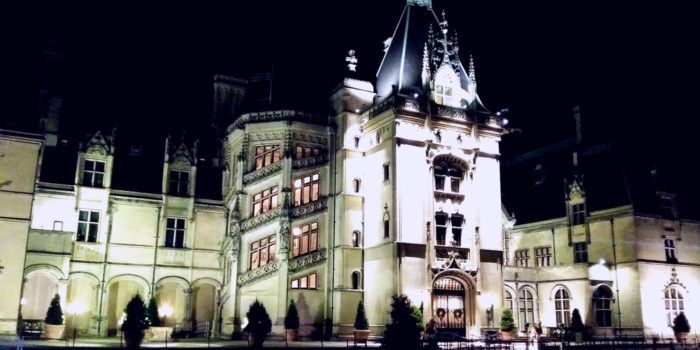(Joshua Glawson, Carolina Journal) Christmas is considered one of the most widely celebrated holidays in the world, and one that was clearly shaped by U.S. traditions.
Many people are unaware, though, that North Carolina has also heavily influenced Christmas celebrations worldwide. From decorations to days of observance, North Carolina has remained pivotal for this Christian holiday and secular day of jubilee.
Christmas Decorations
One of the major ways N.C. contributes to Christmas is through decorations, including Christmas trees, Christmas lights and poinsettias. Tar Heel products decorate homes, churches and businesses around the world.
CHRISTMAS TREES
North Carolina is the second-largest producer of Christmas trees in North America, after Oregon, and produces the signature North Carolina Fraser fir often preferred in iconic annual displays. It is estimated that one out of every four Christmas trees in the United States is from North Carolina.
An N.C. Christmas tree—generally, a Fraser fir—has been selected as the official Christmas tree of the White House over a dozen times and counting. With nearly 1,300 growers and over 40,000 acres for the North Carolina Fraser fir, N.C. has a dedicated market for Christmas trees that reaches people all over the country and beyond.
CHRISTMAS LIGHTS
Some of the most famous places to drive at Christmas for outdoor light display spectacles are in N.C. When safe outdoor Christmas lights became popularized around 1927, N.C. began leading the way.
By 1930, Forest City became one of the most prized small towns in the greater Asheville area for Christmas light enthusiasts.
For many, this charming town’s holiday displays remind them of simpler times and qualities of life hearkened in the Christmas movie “It’s a Wonderful Life.”
Also in the Asheville area, the Biltmore Estate is world famous for its Christmas displays, which recently featured in Hallmark’s “A Biltmore Christmas.”
Another popular Christmas light destination is the town of McAdenville, just west of Charlotte. Often referred to as Christmastown, USA, the small town displays over half a million festive lightbulbs and draws in hundreds of thousands of tourists during the Christmas season.
CHRISTMAS POINSETTIAS
As if the trees and lights weren’t enough, N.C. is also the second-largest source of poinsettias in the nation.
The poinsettia is a Mexican and South American shrub that has vibrant red and dark green leaves resembling a Christmas flower, although it does not have actual petals. Some falsely believe the poinsettia is poisonous, but it’s still likely not a good idea to eat the popular holiday plant.
The poinsettia plant was named after South Carolinian Joel Roberts Poinsett, who originally brought the plant from Mexico to the U.S.
In the early-to-mid 1800s, poinsettias were commonly used as interstate roadside decorations between western North Carolina, eastern Tennessee, and down through South Carolina. And, since the plant became popularized in the region, it has remained a Christmas tradition in North Carolina, which then supplies them for many regions of the country.
Christmas Celebrations
North Carolinians have historically held unique ways of celebrating Christmas, including Moravian Christmas spiced cookies, leaving up decorations until Jan. 6, and celebrating Christmas in July.
OLD CHRISTMAS
Old Christmas, sometimes referred to as Little Christmas or Epiphany, is 12 days after Christmas Day. In fact, the Christmas traditional song “12 Days of Christmas” is about this period between the dates of Dec. 25 and Jan. 6.
Before the state adopted the Gregorian calendar in 1752, many North Carolinians celebrated Christmas around Jan. 6 if they celebrated at all.
This custom of celebrating Christmas on Jan. 6 has continued as a widely-held tradition throughout the state as a way to save money and as a separation of religious practices reserved for the Dec. 25 date for others.
For North Carolinians who moved out of the state, January is also typically a cheaper time to travel to the state to celebrate the holiday with their loved ones.
CHRISTMAS IN JULY
On July 24 – 25, 1933, “Christmas in July” began at an all-girls camp called Keystone Camp in Brevard, North Carolina.
Although this is not recognized as a date for the traditional religious holiday, the deliberately ironic yet fanciful “Christmas in July” is widely celebrated as a time of fun and levity among friends, colleagues, and loved ones, throughout the world.
Other countries that have caught onto the North Carolina tradition of Christmas in July celebrations include Australia, New Zealand, Canada, South Africa, Denmark, and Brazil.
This Christmas, when you are sitting around the decorated living room with your loved ones, take a look around at the N.C. Christmas tree, the lights, the N.C. poinsettias and the N.C. food, and take the time to remember the amazing influences the state of North Carolina has had on the holiday celebrated around the world.

